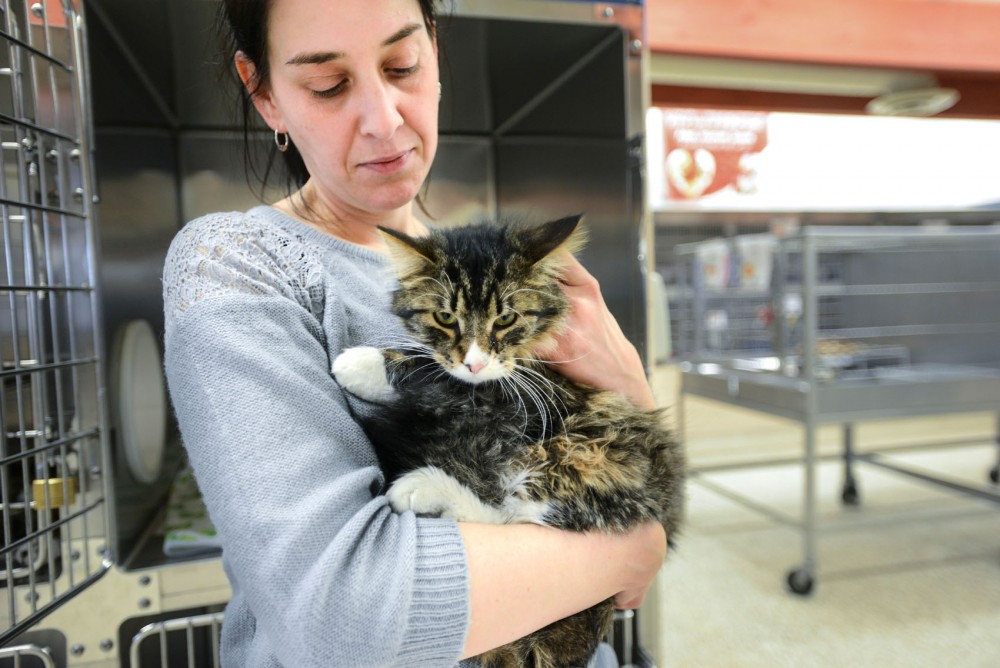Approximately one healthy, adoptable cat or dog is euthanized every 11 seconds in the United States, according to the Humane Society — largely due to pet overpopulation.
But leaders in the University of Minnesota College of Veterinary Medicine hope a new state-of-the-art facility for spaying and neutering pets will help curb this problem while training students.
The college and the Humane Society opened a surgical suite in Golden Valley this fall. Fourth-year veterinary medicine students have begun working in the clinic, performing sterilization surgeries on cats and dogs as part of an elective course.
The facility will offer low-cost sterilization operations both to rescue groups that shelter homeless animals and owners of pets.
“I’m super excited about the partnership,” said Jonna Swanson, an assistant shelter medicine professor. “It’s a chance for the University to give back to the community and … combat overpopulation, which is a huge problem in the U.S. and in Minnesota.”
Students had their first stint in the clinic earlier this month when nine fourth-year students performed 59 sterilization procedures, Swanson said.
Jacqueline Piepkorn, a clinic class instructor, said she aims to prepare students to be confident in performing surgeries professionally. Experience working in the new clinic will help students get to that level, she said.
“We want them to take all the same precautions. We want them to learn how spay and neuter the way private practitioners would expect them to do it,”
Piepkorn said.
Fourth-year veterinary student Joyce Dinnetz was part of the first round of students who worked in the clinic. Dinnetz said she learned about certain procedures that differ between private practice and shelter medicine, which focuses on caring for homeless animals in shelters rather than household pets.
For example, Dinnetz said, private practice clinics don’t often tattoo animals for identification. But to in-shelter medicine, it’s common to document animals that may end up homeless again after time in a shelter.
PetSmart Charities helped fund the new clinic with a $5,000 grant, according to charity spokesman Steve Pawlowski. The charity aims to address homeless pet overpopulation problem by supporting pet sterilization programs, he said.
“We look at any spay-and-neuter initiatives as turning off the spigot of the homeless pet overpopulation problem,” Pawlowski said.


